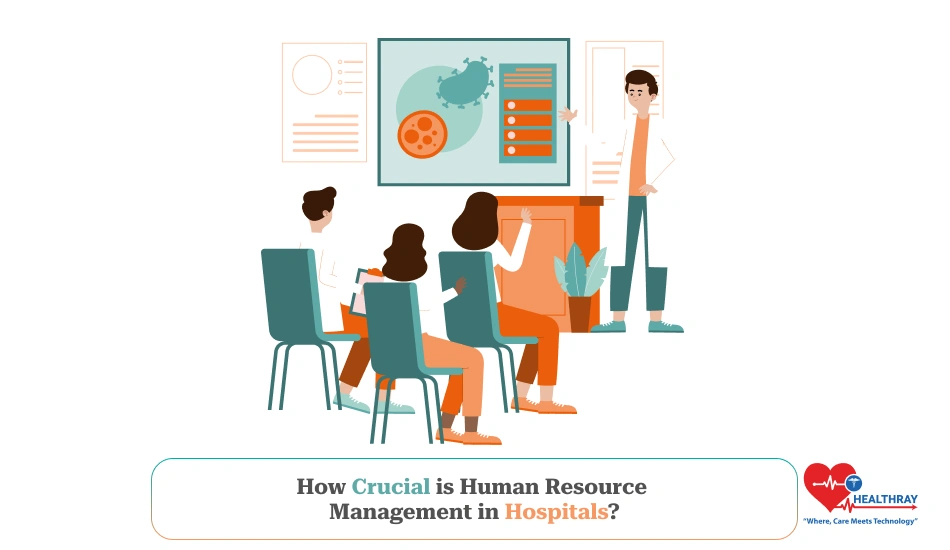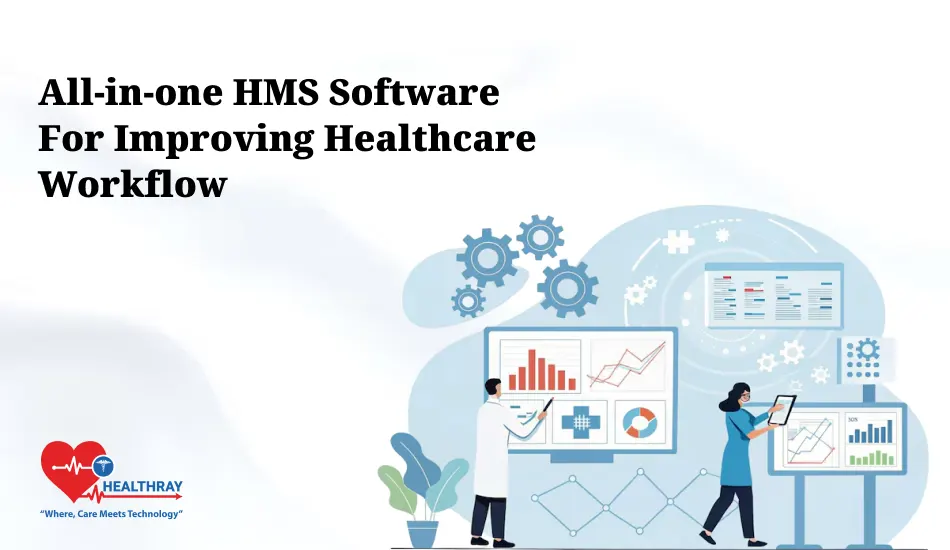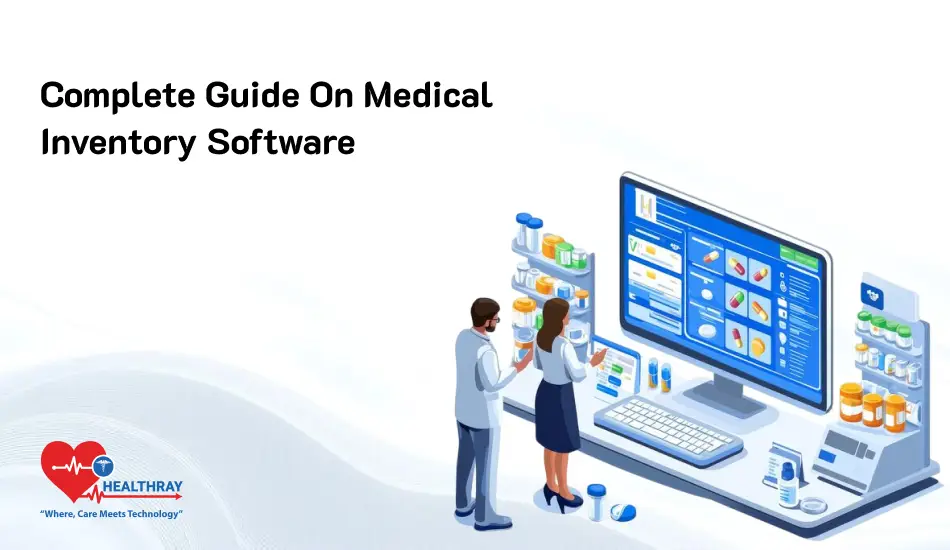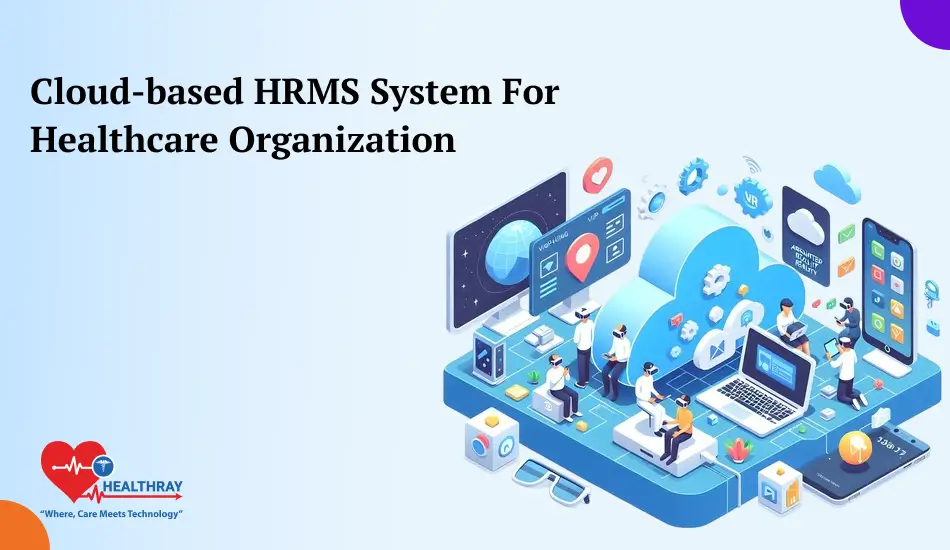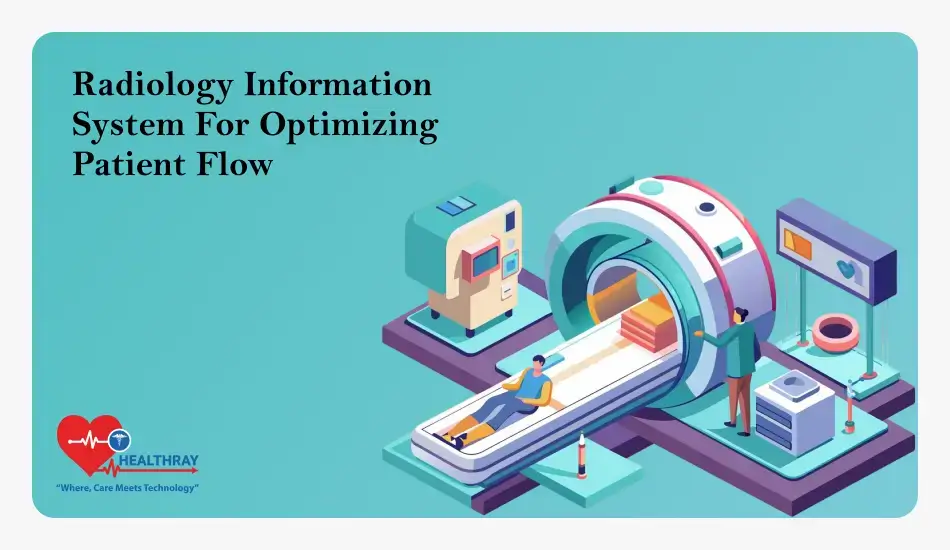Quick Summary: Hospitals need human resource management to attract top people, avoid misbehaving with regulations, and give a healthy work environment. It is health care human resource management that contributes to overall organizational success, improves patient satisfaction, patient outcomes and the provision of excellent healthcare services by ensuring ideal staffing, labor force development, employee retention, and adherence to healthcare norms.
Introduction
As everyone knows, administration plays a critical part in the healthcare industry, making sure that tasks are completed on time and that patients admit effective care. Still, have you ever broken to consider why it functions? Human resource management is the response. This composition explores the value of HRM in the Hospital Information Management System. It offers perceptivity that other companies might apply to lessen the effectiveness of their own human resources management operations.
Why is HRM significant in the medical field? In healthcare settings, HR directors are in charge of making sure that all parties entering their healthcare facilities and healthcare services together — executive staff, clinical staff, and cases are joining them as efficiently as possible. It’s veritably possible that the patient and health care facilities and their medical services would decline in volume and quality without them.
In a single healthcare organization, there are a number of clinical employees and managing each of them is somewhat hard. Even managers find it difficult to assign tasks and monitor their duties. Furthermore, the human resource management system combines staff information, gathering insights from it, and showcases performance reports. Streamlining for human resources to create payroll slips, compute each salary figure after all deductions with commissions, and showcase in the mobile viewport.
There is a separate division for human resource management and popular tools for managing efficiently such as the HRMS system. Furthermore, it bridges the gap between employees and managers and acts, mediator. Assigning tasks, regularly modifying performance reports, and supervision to each employee work. HR sends messages, written announcements for special events, and upload monthly slips that can be fetched through a single click.
Continue reading to find out further about the significance of HRM in healthcare surroundings.
What part does HR play in the medical field?
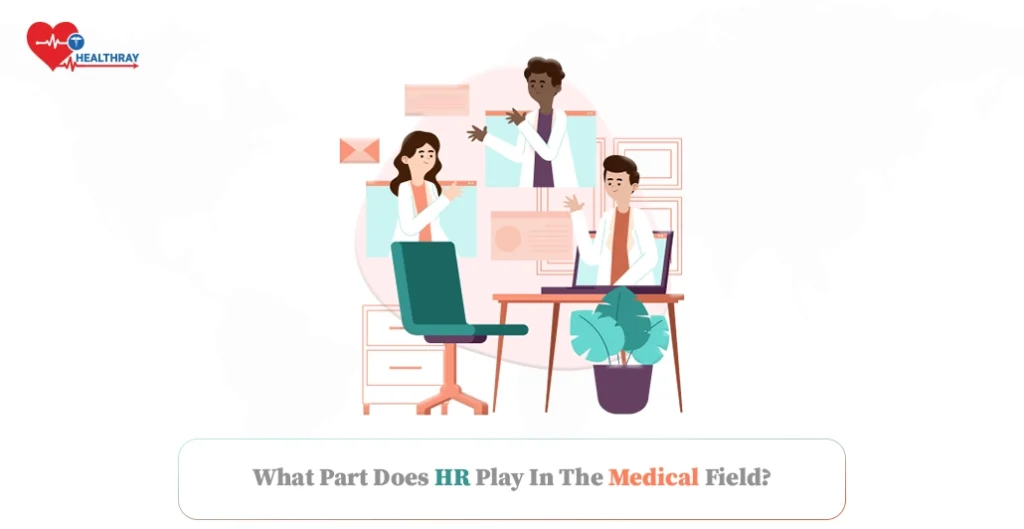
HR Professionals play a critical part in the healthcare system with industry in guaranteeing both the smooth operation of the business and the welfare of its labor force. HR has a wide range of liabilities that extend beyond conventional executive tasks. One of HR managers and human resources professionals’ central liabilities is talent management and accession. It involves changing competent healthcare workers to fill positions similar to doctors, nurses, and executive sidekicks in order to maintain ideal staffing situations.
Also, HR plays a crucial part in health care with medical professionals creating and putting into practice programs and processes. It supports a safe and welcoming surrounding and avoids misbehaves with healthcare laws. It comprises supervising adherence by health care providers and medical personnel to ethical principles, sequestration regulations, and healthcare norms. In addition, HR is essential to staff training and development since it keeps the medical personnel and professionals abreast of the most recent technological and medical developments.
HR also handles employee relations, conflict resolution, and erecting a compassionate and cooperative culture within healthcare enterprises, in addition to resources management. HR specialists work with operations to develop benefit plans that specifically feed the conditions of healthcare professionals. They play a pivotal part in overseeing the healthcare staff heartiness as well, understanding the demanding and pressure-filled nature of the healthcare industry.
Eventually, the HR department plays a critical part in the successful economic development of the healthcare industry by promoting the pretensions of health facilities to the establishment and the wealth of its married labor force.
There are numerous laws and regulations that are applicable to diverse workforce based on their situation and it is harder to perform without the HRMS system. Furthermore, the main contribution has been given by human resource management systems because they are the ones who filled the talented people in the organization, reasons for the hospital growth and increased income.
Why is Human Resource Management important in Healthcare?
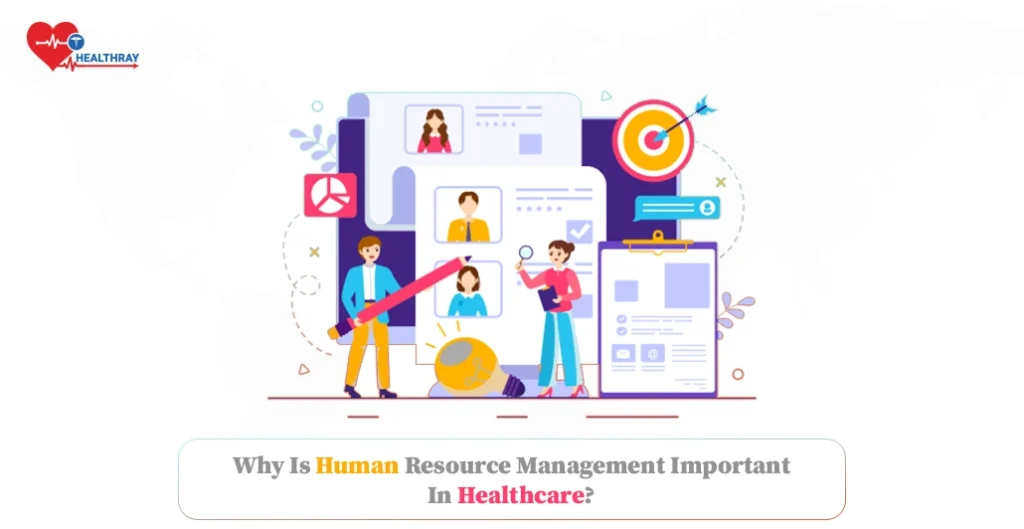
HR managers in the healthcare sector, relatively, keep healthcare organizations and associations operating efficiently, which is why HRM is so pivotal to the health workforce and World Health Organization. Conventions would soon fail if workers in healthcare surroundings weren’t effectively managed.
In order to meet the requirements of the association and its cases, HRM makes sure that the right people are always available on- point. Indeed, though they may not be the sole in assigning tasks inside the company, they put in a lot of trouble behind the scenes to make sure everything operates as efficiently and economically as possible.
Additionally, HRM is in charge of making sure that clinical and nonclinical workers are appropriately distributed throughout the company. It can be difficult to strike the ideal balance so that requirements are satisfied, but managers must do so because both teams have needs and cannot function without the other.
Now, you can administrate a large number of workforce from multiple branches of a single HRMS system. Reduce the stress on the shoulders of managers and monitor each workforce activity. Create short tables and gather insightful information from consolidated data. Furthermore, the HRMS software facilitates personalized experience because of the enhanced capability to monitor each employee.
In addition, HR is in charge of compliance and ethical issues in healthcare institutions. HRM is responsible for monitoring industry compliance and ensuring that each employee complies with the organization’s legal team and organizational obligations. They are also responsible for managing ethical issues across the entire company. It could have to do with social or medical ethics. Or it could have to do with disagreements that arise between patients, staff members, specialists, and medical workers when providing emergency medical treatment or care.
What are the HR Challenges Facing Healthcare?

Recruitment and Shortages
The elderly pool in the healthcare sector is growing, and there’s a labor deficit. In particular, there’s a demand for nurses. According to a Health Foundation composition cited by The Nursing Times, the government must hire more nurses than its ideal of 50,000 by the time in order to fulfill the increased need for nurses and recover entirely from the current epidemic.
Turnover & Retention
Current data indicates a rising trend in medical staff development as well as a lack of nurses. The applicability of HRM assessing the costs and goods of these labor force changes in the NHS on the health care services delivery is emphasized in future research done by the Heath Foundation.
Burnout
Lately, the British Medical Journal brought attention to the ”emergency situations” of staff collapse that the NHS has reached and how seriously this threatens the provision of health services here. HRM is pivotal in the clinical health act making sure that healthcare workers are fit, productive, and, most importantly, don’t witness collapse.
Although there may be cases when this needs enhancement, HR directors must cover the number of hours worked and the internal health of their health care workers well.
Privacy/GDPR
HR directors in the healthcare industry now face fresh challenges related to sequestration and data law compliance as patient health information technology is snappily moving to digital records. Directors of healthcare organizations mustn’t only find the right software, but also make sure that all staff members who have access to data admit data protection training and follow it.
10 Healthcare Human Resources Best Practices
Offer opportunities for training and advancement.
It’s pivotal for the healthcare sector to train new hires and ensure that current bones are continuing their education. It might literally be the difference between an inadequately trained hand and a well-trained one. HR is in charge of creating a training enterprise and icing compliance as part of employee development of a comprehensive onboarding and hand development procedure.
Benefits include better patient care, increased hand retention rates, improved patient satisfaction and outcomes and introductory legal compliance. It’s pivotal for healthcare providers to use software that keeps track of workers’ progress and notifies them when their training is over for renewal.
Offer flexible work options.
Increased inflexibility is the most requested change among healthcare workers, according to the” Future Health Index 2022″. Employers can give in a variety of ways, such as by granting workers lesser autonomy over their work schedules, allowing workers to work even when suitable for the position, and exercising scheduling software to enable shift switching via a mobile app.
The most recent tools for cataloging humans in human resources and human capital and operation( HCM) can filter available shifts according to a worker’s experience and qualifications. Go through our decent article about Types Of Software Used In Health Information Management to make your practice more flexible.
Consider signing bonuses
According to a report by the recruiting establishment Avant Healthcare Professionals, two-thirds of hospitals are exercising subscribing languages to allure professed doctors, nurses, and other medical professionals amid the assiduity-wide labor crunch. Compared to before the epidemic, when fewer than 40 reported exercising similar gratuities, that represents a significant increase.
An examination of bulletins on nursing job forums revealed that the average signing perk for nurses is roughly 15,000 USD. The ideal prospects to secure with these languages are those who are not sure between two offers from various healthcare organizations or businesses. A seeker may need a signing perk in colorful circumstances, similar to when accepting an offer would be delicate due to relocation charges.
Create market-leading compensation packages.
Compensation packages that dominate the request surpass bare pay. Base benefits packages, including life insurance, health and dental insurance, paid time off, and a withdrawal savings plan, are anticipated by healthcare workers everywhere.
Still, there are fresh ways to get paid, similar to a spa class, payment for training, tools for financial and financial planning resources, childcare subsidies, and advantages for exchanging. Many healthcare directors start by having exchanges with staff members to ascertain their top precedence. You might be surprised by their responses.
Emphasize culture
Creating and maintaining a pleasant plant culture is essential for drawing in new hires, keeping hold of being staff, and encouraging creativity. In the interim, workers are more likely to put patient care first if they’re satisfied with the culture of their plant and feel valued. Indeed, studies conducted by the National Health Service in the United Kingdom indicate that a dysfunctional organizational culture raises patient death rates.
A thorough and intriguing hand exposure process, the perpetration of a mentorship program, admitting and awarding hand accomplishments( big and small), and encouraging an open line of communication with elderly operation through checks and in-person platoon- structure and strategy meetings are many conducted healthcare associations can take to enhance their plant culture.
Embrace technology and automation.
Multitudinous technological advancements have the eventuality to reduce costs while enhancing and improving patient satisfaction, patient outcomes, guests, clinician satisfaction improve patient outcomes, organizational effectiveness, and health issues in the healthcare assiduity.
Mobile scheduling and employment operation apps automate executive work and let workers design unique career circles.
In contrast, telemedicine, wearable technology, and mobile health operations put clinicians in direct contact with cases. To guarantee that staff members admit the training needed to use these new capabilities, HR must unite nearly with IT.
Focus on preventing burnout
To help them in maintaining a work-life balance. They are creating programs and procedures to deal with tired workers, like circumscribing 12-hour shifts, allowing workers to take breaks every couple of hours, and offering sleeping apartments.
In fact, several hospitals have enforced “fatigue musketeers,” who keep an eye out for one another’s weariness symptoms. Also, workers are making it more straightforward to resolve shifts or make dynamic shift changes thanks to healthcare associations.
Some companies are furnishing their nursing staff with private access to internal health coffers. Also, they’re tutoring directors on how to lead with empathy and motivating them to interact with staff members on a regular basis as opposed to only at occasional check-sways.
Provide job security
According to the most recent U.S. News & World Report Best Jobs rankings, eleven of the twenty most secure jobs are in the healthcare sector, with respiratory therapists, specialist doctors, cardiovascular technologists, and epidemiologists at the top of the list. Hence, healthcare professionals and those at the top of the field don’t give much thought to keeping their jobs.
Non Clinical healthcare employees, on the other hand, have less job stability, which gives HR specialists a chance to provide learning and development opportunities and career mobility within the company when different departments’ needs and communication styles shift.
Let teams self-manage
Employees in self-managed teams are accountable for organizing and carrying out work with minimal or no supervision in order to accomplish predetermined objectives. In this concept, team members pledge themselves to one another, and the work is motivated by those pledges.
A self-managed team still has hierarchy and accountability even when there isn’t a manager. Workers with specialized knowledge assume leadership positions for pertinent tasks. Self-managed teams have lower expenses and more employee engagement. Furthermore, self-managed teams are more adaptable in how they approach tasks and situations because they are more efficient at deploying their human resources for their health outcomes, according to the International Journal of Health Organization and Management.
Stay up to date on laws and compliance
To stay informed about and maintain compliance with a plethora of assiduity-specific laws and regulations, healthcare organizations’ HR brigades must unite nearly with their association’s legal department. These laws and regulations include the preliminarily mentioned HIPAA, which safeguards health workers from patient data sequestration; EMTALA, which authorizations hospitals to treat cases in the exigency room anyhow of their capability to pay; and PSQIA, which shields healthcare workers who report unsafe plant conditions.
Piecemeal from the civil legislation, there are other state-specific rules and licensing conditions for certain positions. Expensive legal conduct and forfeitures are among the consequences of resistance.
HR Healthcare Services at Healthray
Your workers’ health and well- being are given top precedence by Healthray’s HR Healthcare Services, guaranteeing a happier and more effective plant. Our all- inclusive HR results, which include customized sweats for hand heartiness health care management, benefits administration, and gift operation, fluently snare your healthcare industry pretensions.
We offer specialist HR advice to ameliorate hand happiness and streamline operations since we fete the particular difficulties faced by the healthcare sector. Healthray’s HR Healthcare Services streamline mortal resource procedures from hiring to retaining staff, freeing up healthcare workers to concentrate on furnishing superior case care. Looking for HMIS Software that can help you as an HR? We are here to help you.
Please put your trust in us to give your healthcare industry the platoon effective, ethical, and biddable HR results that will promote a culture of excellence and health.
Conclusion
HRM, or human resource management, is essential to the effective operation of hospitals. It’s critical for attracting and keeping good healthcare workers as well as for creating a happy plant that has a direct impact on patient care. Reasonable HRM procedures guarantee an engaged pool, lower waste rates, and increased hand satisfaction. HRM plays a critical part in the dynamic healthcare terrain by helping to acclimate to changing laws, new technology, and the colorful requirements of both cases and staff. In the end, perfecting overall organizational and performance management, fostering a culture of excellent patient care delivery, and maintaining excellence in the provision of healthcare services all depend on hospitals having a well-structured HRM frame.
